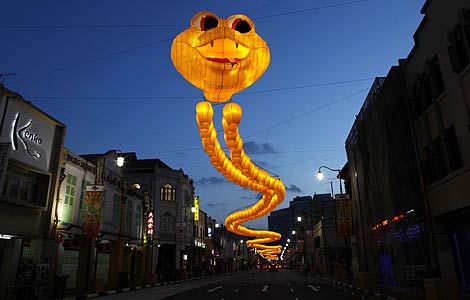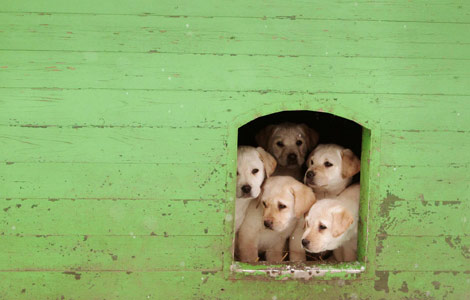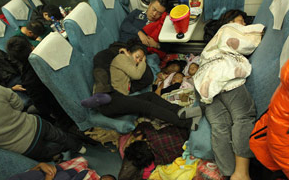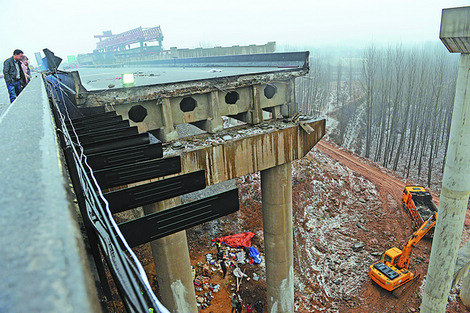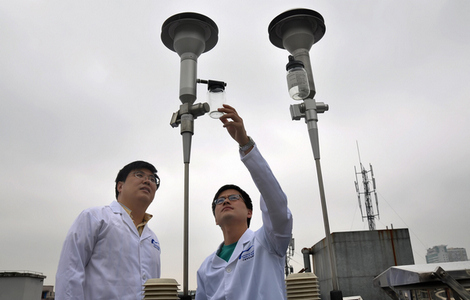Ministry acts on dairy safety
Updated: 2013-02-04 02:43
By ZHENG JINRAN (China Daily)
|
||||||||
|
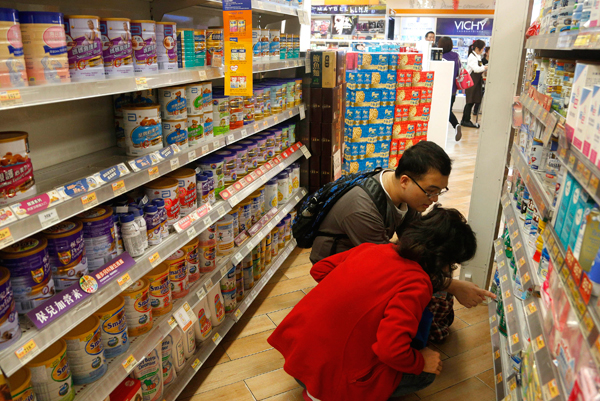 |
China's food safety watchdog plans to introduce tougher regulations on the import and export of dairy products, following a series of scandals.
Any imported dairy product that fails to meet safety, health and environmental standards is likely to be destroyed within three months, or returned to its country of origin, according to a regulation released by the General Administration of Quality Supervision, Inspection and Quarantine on Friday.
The Supervision and Management Regulation on the Inspection and Quarantine of Imported and Exported Dairy Products will come into effect on May 1.
Wang Dingmian, the former vice-chairman of the Guangdong Dairy Industry Association, welcomed the move and said that stricter supervision could help protect customer safety, and force manufacturers to pay more attention to the country's existing nutritional standards.
"Standards do need to be improved, otherwise the effects will be limited," Wang said.
Zhang Silai, a former head of pediatrics at Beijing Hospital of Integrated Traditional and Western Medicine, agreed, adding that dicyandiamide, or DCD, in contaminated milk powder from New Zealand, was an example of one substance that had escaped inclusion in the current regulations.
"It's an element that should not be allowed in milk, yet it's not on the forbidden list in China," she said. "We don't yet know what harm that element could have."
DCD is used to improve water quality on some farms by reducing nitrate levels, as well as cutting greenhouse gas emissions.
In September, traces of the chemical were discovered in products being exported from New Zealand.
The issue has received huge attention in China after it was exposed a week ago.
The New Zealand Ministry for Primary Industries has since insisted there is no food safety risk — however, many Chinese parents remain nervous of using imported products from New Zealand, especially after hearing that DCD has been linked to melamine, which was the chemical at the center of the contaminated baby formula scandal in 2008 in China.
Both Wang and Zhang said they believed there was no need for parents to worry about milk powder from New Zealand, because of the tiny quantities of the substance involved.
A person weighing 60 kg would have to drink more than 130 liters of the milk to be over the European Commission's acceptable daily intake of DCD, and "considerably" more to have adverse health effects, said Wayne McNee, director-general of New Zealand's Ministry for Primary Industries, last week.
China has become the world's largest baby formula milk powder market, because many Chinese parents have had low confidence in its own domestic brands since 2008.
About 80 percent of imported dairy products were from New Zealand in 2012, Wang added.
Chen Zhuolin, the mother of a 15-month-old girl, said: "I'll never allow my baby girl to have domestic milk powder, even though I pay a lot more for imported baby formula."
She said that she was going to Hong Kong every month to buy baby formula.
Some regions, including Hong Kong, have just issued amount restrictions on purchasing milk powder, as a result of many parents doing the same.
Contact the writer at zhengjinran@chinadaily.com.cn


